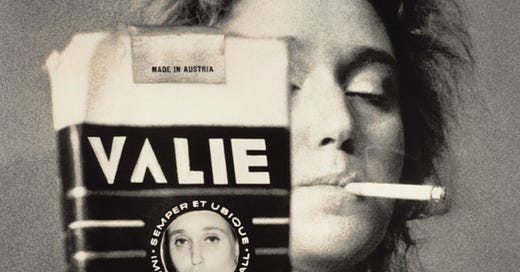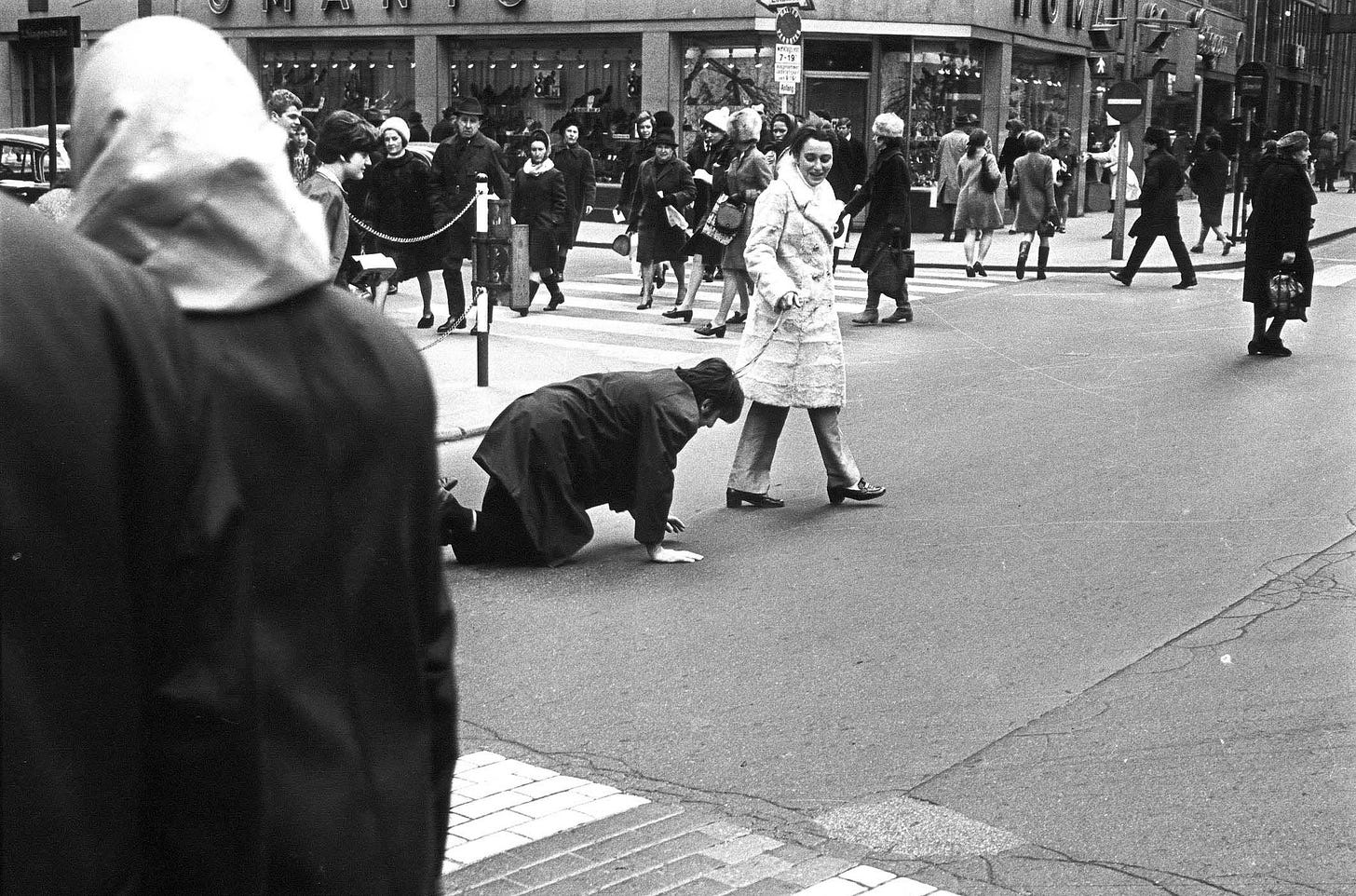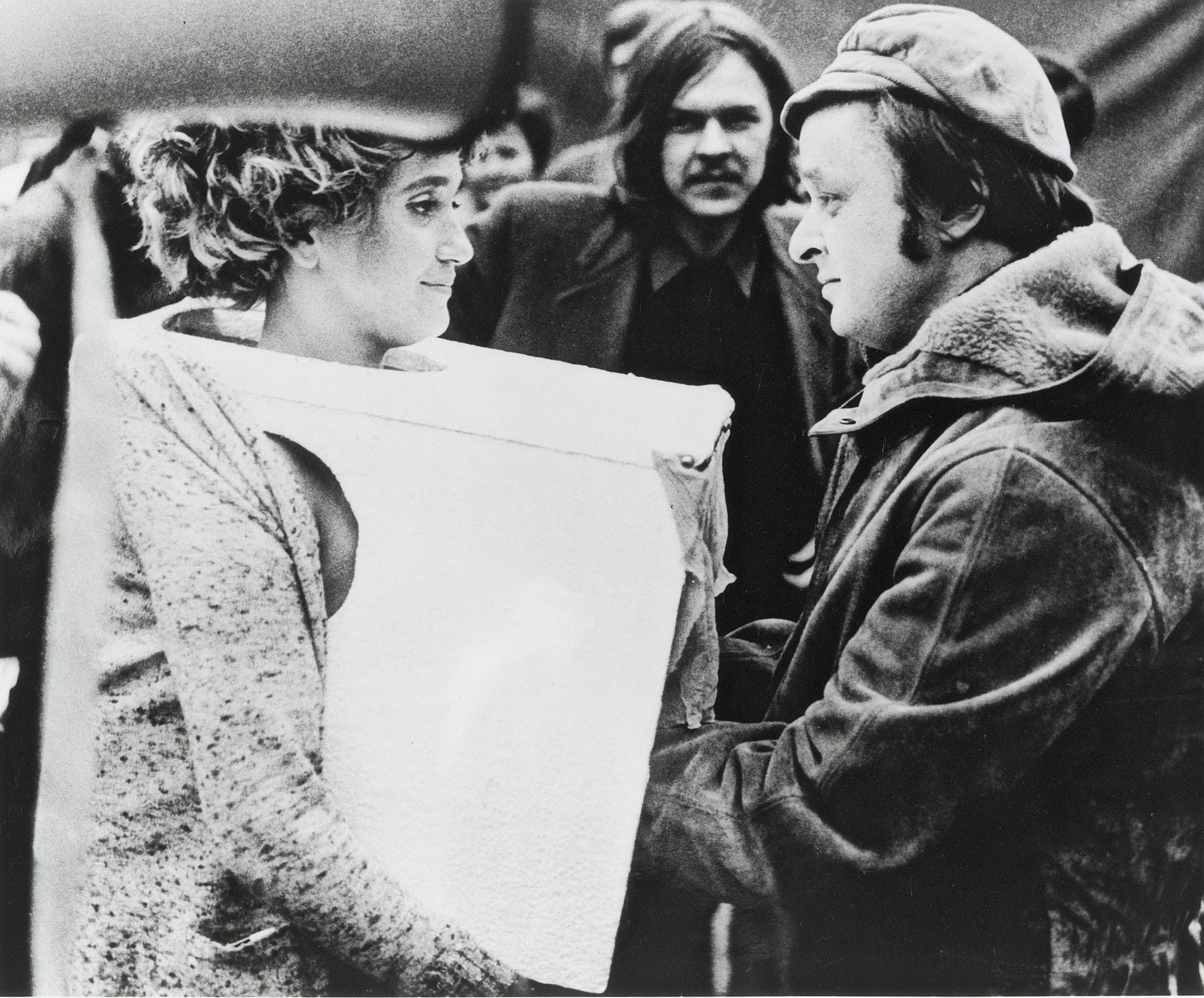VALIE EXPORT: Retrospective
The Albertina is holding a retrospective for one of the stars of Viennese Actionism whose feminist work challenged Austria's patriarchy
Servus!
In the summer of 1995, Susan Sontag undertook to write a preface to a new edition of the Spanish translation of her landmark essay collection, Against Interpretation, first published in 1966. The “mythic era known as the Sixties,” she reflected, were a time when “new permissions were in the air, and old hierarchies had become ripe for toppling.” It was a period that would, in retrospect, come to be judged as “exceptionally creative”—new masterpieces appeared “every month.” Back then, Sontag was in a combative mood: “against philistinism, against ethical and aesthetic shallowness and indifference.”
In Austria, that spirit of the Sixties was embodied in the atomized artistic movement known as Viennese Actionism, a transgressive and violent creative rebellion against state authority and the country’s stifling political, social, and cultural Catholic-inflected conservatism. The Viennese Actionists used various media and abandoned all the rules and norms of art and taste in the period in order to challenge and overturn the status quo. Think Hermann Nitsch’s bloody, dripping ‘splatter paintings’ or his profane, sadomasochistic music and dance performances named the Orgies Mysteries Theater.
One of the stars of Viennese Actionism, VALIE EXPORT, is currently being celebrated in Vienna by way of a major retrospective held at the Albertina. Born in Linz in 1940, VALIE EXPORT has been, since the 1960s, an artist, a creator, and a political activist. Via the copyrighting of her nom de guerre, she is also an object, a commodity, a performance piece. Her ‘actions,’ her provocative interventions in the public space designed to elicit a reaction, were explicitly feminist, a critique of Austria’s patriarchal society and the subservient place of women and women’s bodies in it.
In EXPORT’s work, the action is the art and the media the form through which it is captured and immortalized. From the Portfolio of Dogness (pictured above) was an action, staged in 1968, during which EXPORT led the artist Peter Weibel down Kärntner Straße on a leash, with Weibel crawling on all four like a hound. The relationship between Weibel and EXPORT, the dog and his master, reversed the common power dynamic between man and woman and confronted observers with this bizarre, challenging representation of domination and public humiliation. The action was preserved through photography; others were captured on video.
Central to EXPORT’S work is the female body—and specifically EXPORT’s body. EXPORT places and uses herself in her photographs and drawings. EXPORT is an object in her work, but she is not per se its subject. Rather, she uses her body as a means to advance feminist ideas and challenge patriarchal norms. In 1968, with Touch Cinema (pictured below), EXPORT mounted a box fitted with a curtain to the front of her naked body, inviting the public put their hands inside and touch her breasts. When in 1976, with Homo Meter II, EXPORT tied a loaf of bread to her belly and walked up and down Mariahilfer Straße, inviting the public to cut off a slice, her body served as the vehicle for addressing a woman’s role as mother and nourisher and man’s dependence on women.
The Sixties, Sontag wrote in 1995, have had their “dissident spirit quashed” and been “made the object of intense nostalgia. … The recommendations and enthusiasms expressed in the essays collected in Against Interpretation have become the possession of many people now.” The Sixties—and the people who made it—have gone through a process of canonization. It happened to Sontag, it happened to Nitsch, and now via this retrospective—at the Albertina, no less!—it has happened to EXPORT too. As Alice Roosevelt Longworth once said, “First you’re young, then you’re middle aged, then you’re wonderful.”
VALIE EXPORT: Retrospective runs at the Albertina until October 1. If you’re in Vienna this summer: Go see it.
Bis bald!
Thank you for subscribing to the Vienna Briefing. If you know someone who might be interested in receiving this newsletter, consider sharing it with them today.
The Vienna Briefing is a reader-supported publication. If you would like to support my work, think about sending me a tip via PayPal. Thank you to all contributors.
Let The Good Times Roll
Austria is looking at five years of economic growth, according to a new assessment from Vienna’s Institute for Advanced Studies. Inflation will fall to 2.3 percent by 2027, while the economy will grow at under 2 percent a year.
Nazis At The Pool
A man with National Socialist tattoos was able to visit a lido in Braunau am Inn without being apprehended by police, an eyewitness had alleged. The man has since been taken into custody and the relevant officers are now the subject of disciplinary proceedings.
Free Testing Isn’t Free
Austria spent €5.2 billion on its free nationwide COVID-19 testing program up until the end of 2022. The country’s national audit office criticized the government for instituting the program without a clear strategy or the necessary preparation.






